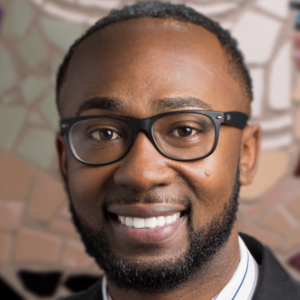 A new report from the Graduate College of Social Work at the University of Houston shows that formerly incarcerated Black men enrolled in an alternative school with arts-based programming — writing, poetry, music — showed healthier social and emotional development and higher academic achievement as they transitioned to adulthood. The lead author of the study is Charles Lea, now an assistant professor at the Graduate College of Social Work at the University of Houston.
A new report from the Graduate College of Social Work at the University of Houston shows that formerly incarcerated Black men enrolled in an alternative school with arts-based programming — writing, poetry, music — showed healthier social and emotional development and higher academic achievement as they transitioned to adulthood. The lead author of the study is Charles Lea, now an assistant professor at the Graduate College of Social Work at the University of Houston.
Young Black men are disproportionately incarcerated compared to other racial and gender groups, and with little coordination between the justice system and the educational system, more than 40 percent of young people released from correctional facilities don’t return to school.
Dr. Lea’s research was conducted at an alternative high school in Los Angeles County that offers arts-based programming. Study participants expressed difficulty reentering society, in part because their early incarceration put them behind academically and otherwise affected their social and emotional development.
Previous research has found the arts, which emphasize the personal, emotional, human and spiritual aspects of learning, can positively influence young people who have been exposed to adversity. “It’s a way they can express themselves comfortably, whether that’s through music, poetry or performance, but little was known about how it could impact Black men who had been incarcerated,” said Dr. Lea, “Having these alternative ways to engage and educate is critical to address racial disparities in criminal justice.”
Dr. Lea is a graduate of the University of California, Berkeley, where he majored in sociology. He holds a master of social work degree from the University of Michigan and a Ph.D. in social welfare from the University of California Los Angeles.
The study, “Everybody is an Artist”: Arts‐based Education and Formerly Incarcerated Young Black Men’s Academic and Social-Emotional Development in an Alternative School,” was published on the website of the American Journal of Community Psychology. It may be accessed here.













Why does the study keep referring to black boys as men? It is misleading